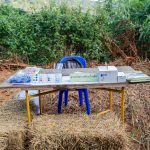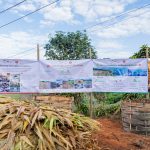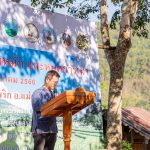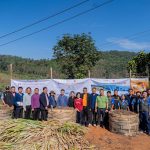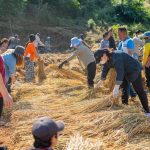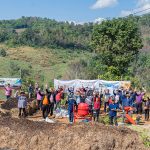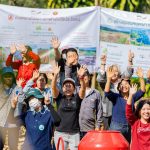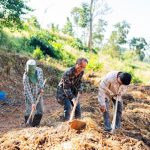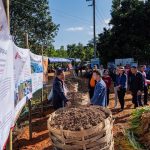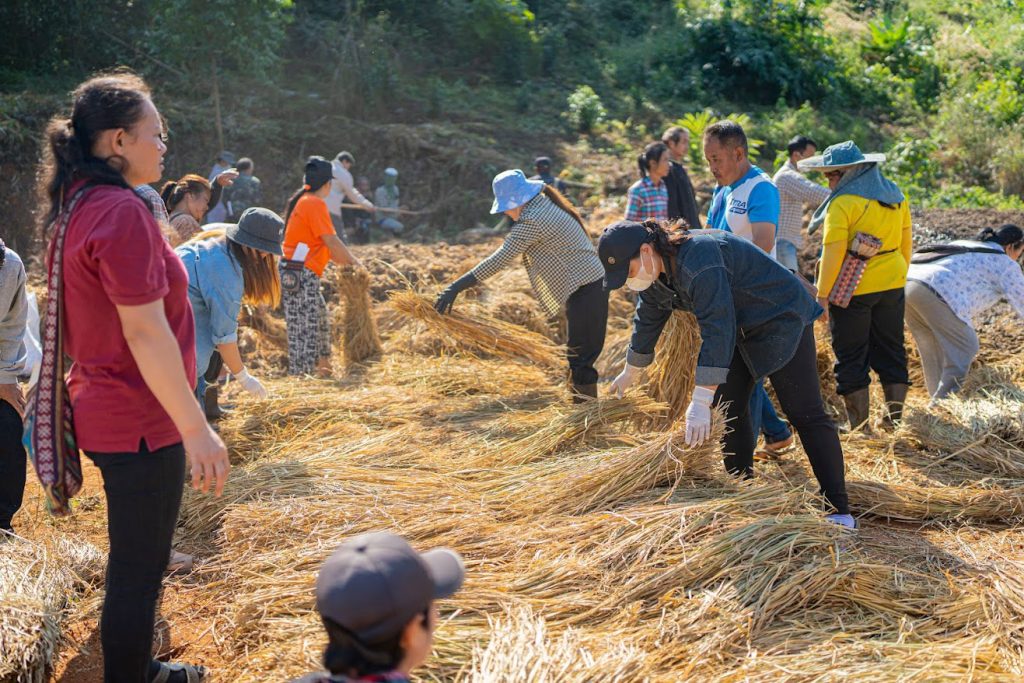
Three villages in Mae Suai District, Chiang Rai, namely Ban Pang Klang, Pang Ton Phung, and Pang Annakhet, were selected as pilot areas for development, food security and occupational development based on the 8-year highland research and development plan (2020-2027).
All three villages are within the Doi Luang National Park boundary. Over the past 3-4 years, the impact of the COVID-19 pandemic has led to a migration back to hometowns, with residents resuming agricultural activities such as maize cultivation to feed animals. This has resulted in a substantial accumulation of agricultural residues. Typically, when farmers are unsure how to manage these residues, they resort to conventional methods such as burning, which has health and environmental impacts.
Mae Prik Subdistrict Administration Organisation, Highland Research and Development Institute (Public Organisation) – Wawee Highland Development Project using the Royal Project System, and GIZ under the SFF ASEAN: Piloting Sustainable Uses of Rice Straw project, organised a ‘Composting Workshop to Stop Burning’ along with a dialogue on ‘Utilising Rice Straw and Stop Burning’ for farmers in all three villages at Pang Klang village in Mae Prik Sub-district.
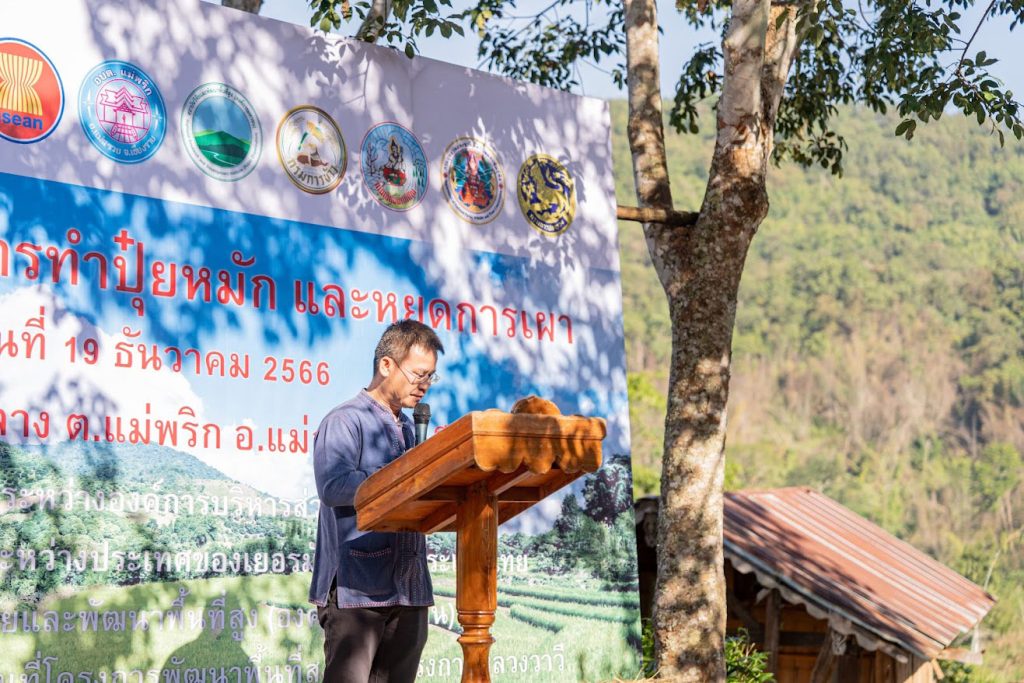
Udom Pukpongbawonkul, Mae Suai District Chief, gave the opening remarks, saying: “Agricultural residues are often burned by farmers because there is no feasible management option for these residues. If we can demonstrate and promote methods to turn rice straw and corn stubble into a valuable resource, we can ultimately create occupational opportunities, enhance income and reduce burning in Chiang Rai.”
He also participated in a discussion with local government agencies, including Wawee Highland Development Project using the Royal Project System, Mae Prik Subdistrict Administration Organisation, village leaders, Chiang Rai Rice Research Center, Doi Luang National Park, and GIZ. More than 70 participants attended the workshop.
The Composting Workshop to Stop Burning was organised for farmers to learn and then apply the knowledge in their plots. Instead of burning leaves, branches, rice straw, corn stubble and other agricultural residue, these can be utilised as composting or organic fertiliser to reduce cultivation costs.
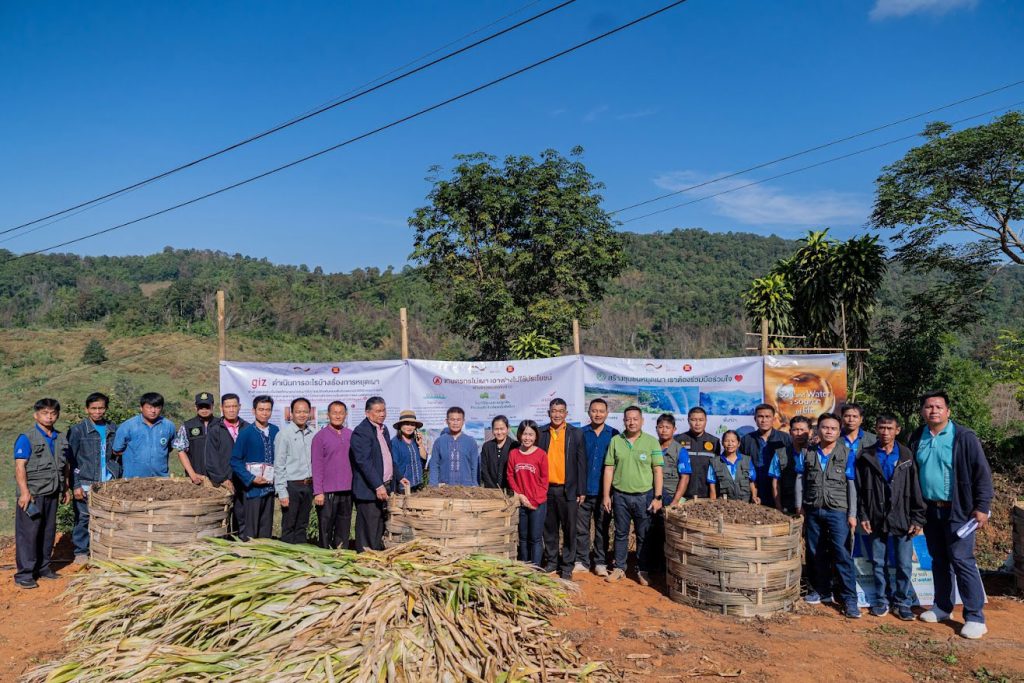
The workshop emphasised simple and cost-effective composting methods, teaching farmers how to add value to compost by using it as a fertiliser for seedlings. This option could also be an interesting occupational opportunity and enhance their income. Additionally, farmers received insights into crucial rice diseases and pests, soil analysis, and innovative agricultural practices from the Chiang Rai Rice Research Center and the Chiang Rai Land Development Station. GIZ provided the composting equipment and support machinery, which enabled farmers to learn how to apply innovations to improve production efficiency in practice and create benefits for farming communities as they move towards sustainability in the long term. ■

